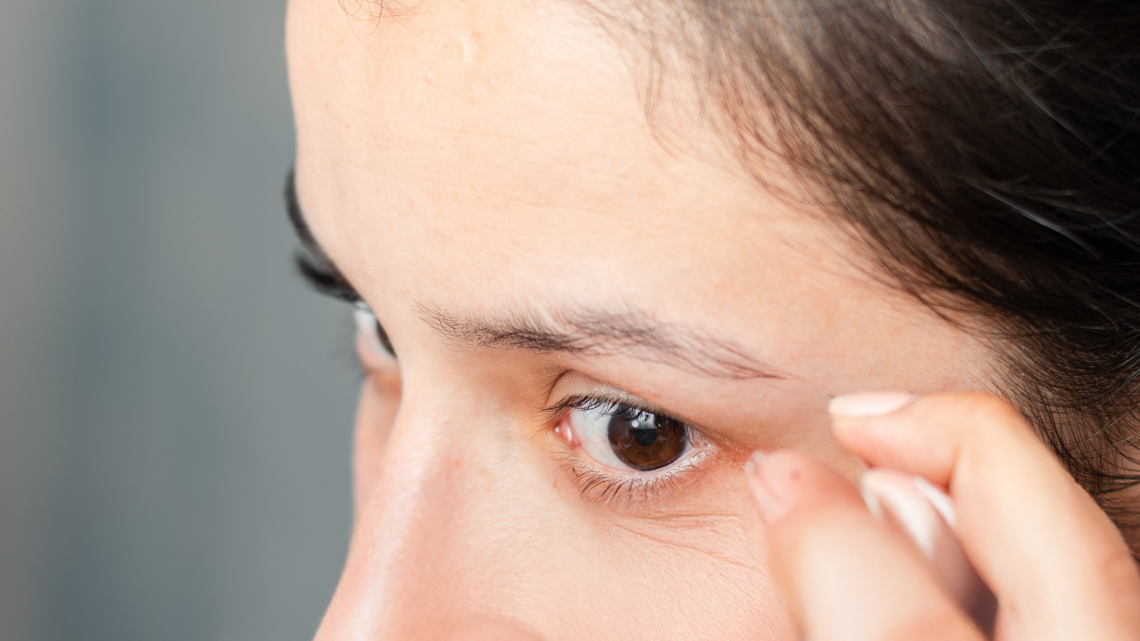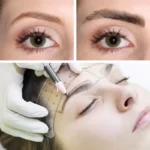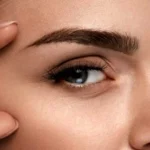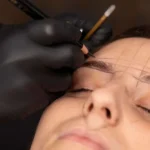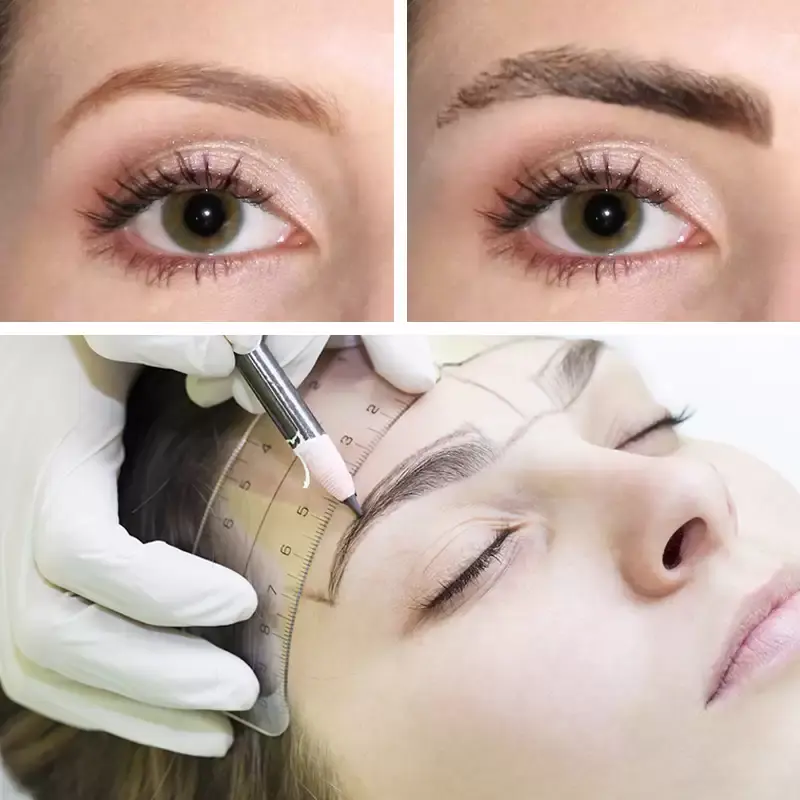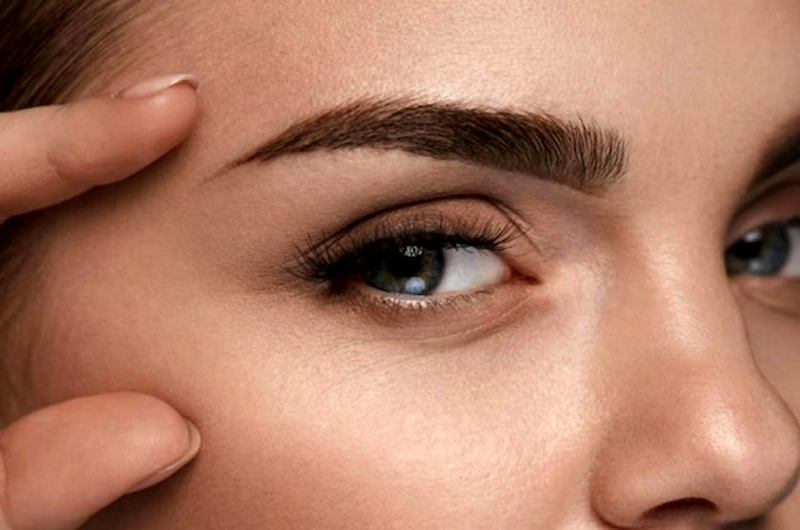Table of Contents
ToggleCigarette hair loss, or for that matter, nicotine has been associated with hair thinning due to its effects on blood flow and scalp health. While it doesn’t directly cause baldness, it contributes to hair fall by restricting blood vessels and reducing the nutrients and oxygen delivered to hair follicles. Understanding these impacts is essential for managing hair health effectively.
Nicotine’s Impact on Hair
How Does Nicotine Affect Hair Growth?
Does nicotine cause hair loss? Nicotine disrupts the hair growth cycle by reducing blood flow to the scalp. Blood vessels constrict, limiting oxygen and nutrient delivery to hair follicles. This weakens follicles, causing them to enter a resting phase prematurely and slowing hair regrowth. Over time, the effects of smoking can lead to noticeable hair thinning.
Similar to how certain styling products can affect your scalp, using hair gel incorrectly may also trigger temporary hair loss.
Is Nicotine a DHT Blocker?
While more research is needed, the possibility that nicotine increases DHT adds another reason for patients concerned about thinning hair to avoid nicotine products.
Dihydrotestosterone (DHT) is the main hormone tied to male and female pattern baldness. Some studies suggest nicotine may influence hormone activity, which raises the question: does nicotine increase DHT? While more research is needed, higher DHT levels are closely linked to pattern hair loss, so nicotine exposure could make thinning worse for those who are sensitive.
While smoking doesn’t create DHT, its indirect effects can accelerate hair thinning in individuals prone to baldness. Learn all about DHT Blockers here.
Nicotine gum hair loss reversible
Some patients ask whether using nicotine gum leads to hair loss and if the effect is reversible. Current evidence suggests gum has fewer scalp effects than smoking, but nicotine exposure in any form may still slow follicle recovery.
Smoking and Hair Loss: The Science
Cigarette smoking releases harmful toxins, such as free radicals, which cause oxidative stress and damage hair follicles. Tobacco smoke also impairs DNA repair processes, further weakening follicles and affecting hair growth. These combined effects of smoking contribute to hair loss and poor scalp health.
Nicotine pouches such as Zyn are often marketed as a smoke-free alternative. While they remove tar and combustion products, they still deliver nicotine directly into the body. This raises the question: can Zyn cause hair loss? The answer is that nicotine itself, regardless of delivery method, can reduce blood flow to the scalp and increase oxidative stress. These effects may weaken hair follicles over time.
Current research on Zyn and hair loss is limited, but the biological link between nicotine exposure and hair thinning makes it a concern for people prone to pattern baldness.
Can Smoking Lead to Baldness?
Smoking and Hair Loss: The Risks
Smoking and hair loss are closely linked due to the adverse effects of tobacco products on scalp circulation. As previously mentioned, smoking increases the risk of thinning hair by disrupting the hair growth cycle and reducing the supply of essential nutrients. Long-term exposure to cigarette smoke can lead to more permanent damage, increasing the chances of baldness.
Curious about where you stand when it comes to hair loss? Feel free to read all about the Norwood Scale for Hair Loss.
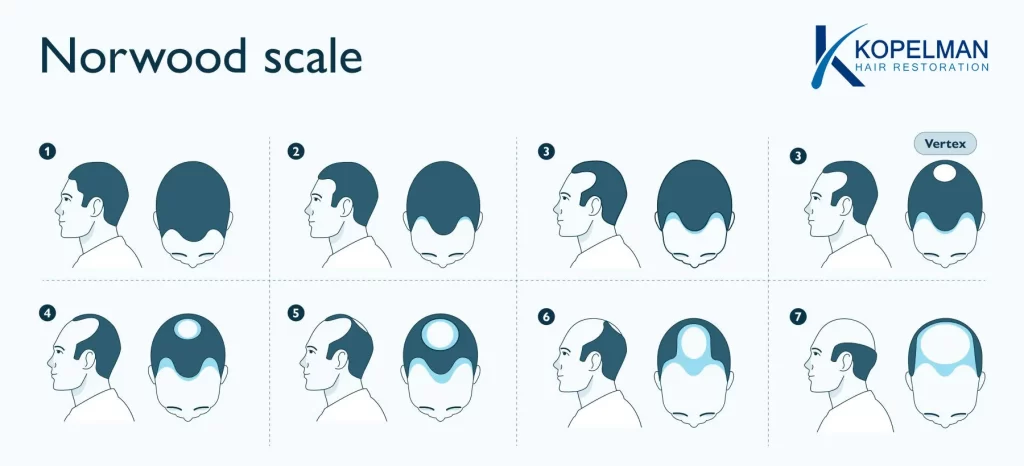
Cigarettes and Hair Follicle Damage
Cigarettes contain harmful chemicals like nicotine, carbon monoxide, and tar, which damage hair follicles over time. These substances weaken the cells responsible for healthy hair growth, making it harder for follicles to regenerate. Persistent damage may result in permanent hair loss in some individuals.
Hair Recovery After Quitting Smoking
Quitting cigarette smoking can improve hair health. Blood flow to the scalp gradually normalizes, delivering more oxygen and nutrients to hair follicles. While some damage caused by smoking is reversible, the extent of hair regrowth depends on how long the individual smoked and the overall health of their hair follicles.
Solutions for Hair Loss Due to Smoking
Is Nicotine Hair Loss Reversible?
Hair loss due to smoking is often reversible if addressed early. By quitting smoking and supporting your hair with proper care, you can encourage regrowth. However, severe follicle damage may limit recovery, emphasizing the importance of addressing smoking-related hair loss promptly.
Best Treatments for Smokers’ Hair Loss
Effective treatments for hair loss due to smoking include topical solutions like minoxidil, which promotes hair regrowth, and finasteride, which blocks DHT. Scalp care routines—such as using moisturizing shampoos and improving circulation with massages—can further aid recovery. For severe cases, hair transplantation may be a viable option.
Nicotine replacement therapies like Nicorette are generally considered safer than smoking, but they still expose the body to nicotine.Nicotine replacement therapies like Nicorette are generally considered safer than smoking, but they still expose the body to nicotine.
Some users also search for ‘Nicorette side effects hair loss’ when looking for answers about nicotine replacement therapies. While reports are rare, nicotine’s effect on circulation and oxidative stress could still influence hair health. For individuals already prone to androgenetic alopecia, Nicorette use may still contribute to hair shedding.
Regrowth Tips for Former Smokers
For better results after quitting smoking:
- Eat a nutrient-rich diet with biotin, zinc, and iron to support healthy hair.
- Exercise regularly to improve blood flow to your scalp.
- Use stress management techniques, such as meditation, to reduce hair loss triggers.
- Stay consistent with hair care routines for noticeable improvements over time.
Concerned about Cannabis use or Vaping? Take a look at our articles on Hair Loss and Marijuana and Vaping Hair Shedding.
How to find help if you’re trying to quit smoking
Smoking Cessation Programs: These programs offer resources and guidance to help individuals quit smoking. Both in-person and online options are available, and many insurance plans cover the associated costs.
Nicotine Replacement Therapy (NRT): NRT reduces nicotine dependence and aids in smoking cessation. Options include patches, gum, and nasal sprays, which can be purchased over the counter or with a prescription. Many of these products are covered by insurance, and costs may also be reimbursed through flexible spending accounts (FSA) or health savings accounts (HSA). Some insurance providers even offer free nicotine patches.
Prescription Medications: Medications like Bupropion (Wellbutrin, Zyban) and Varenicline (Chantix) have been proven effective in helping individuals quit smoking. These prescription treatments are often covered by insurance.
Lifestyle Changes for Hair Recovery
Comparing Smoking to Genetic Hair Loss
Smoking-related hair loss stems from external factors like toxins and poor circulation, while genetic hair loss (androgenetic alopecia) is driven by hereditary DHT sensitivity. However, smoking can worsen genetic baldness by adding stress to hair follicles. Quitting smoking can reduce this additional strain.
Diet and Exercise for Healthier Hair
A healthy lifestyle is key to recovering from smoking-related hair loss. Focus on:
- Diet: Include foods high in protein, biotin, zinc, and iron for stronger hair.
- Exercise: Improve scalp blood flow and oxygenation through regular physical activity.
These habits promote overall hair health and complement recovery efforts.
Can smoking Cause Baldness Frequently Asked Questions
Does Nicotine Gum Cause Hair Loss?
Nicotine gum doesn’t contain harmful chemicals like cigarettes, but excessive use may affect blood flow and indirectly contribute to hair loss. However, it is far less harmful than smoking and can help reduce overall nicotine consumption.
Does Zyn Cause Hair Loss?
Zyn hair loss concerns are growing. Zyn, a smokeless nicotine product, doesn’t directly cause hair loss. However, excessive nicotine use—whether from Zyn or other sources—can limit blood circulation to hair follicles. Monitoring your intake can minimize potential effects on hair health.
Can Nicotine Replacement Therapy Harm Hair?
Nicotine replacement therapy (NRT), like patches or lozenges, is safer for hair health than smoking. While nicotine may slightly affect blood flow, NRT lacks the oxidative stress and toxins from cigarettes that significantly contribute to hair loss. The benefits of quitting smoking far outweigh these minor risks.



